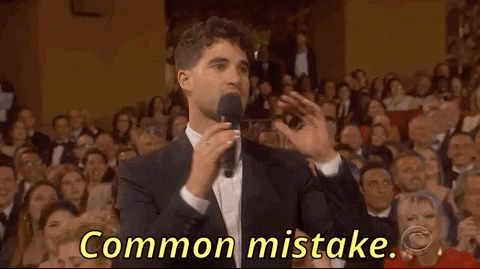Budget planning is a critical part of a hotel’s success. Irrespective of the size, it helps in keeping properties profitable, attractive, and function properly.
Despite that, “How to create a hotel budget plan?” sounds like a catch-22.
Though it is not! Trust me!
It’s just the crux of the matter that most hotels aren’t well-informed about the right ways of budgeting.
So, are you one of them?
If yes, let me help you. If not, I am sure you will find something useful here.
This blog is going to be all things hotel budgeting. I will try to touch on as many aspects as possible to help you understand this segment.
Let’s start from the basics and understand what exactly hotel budgeting is.
Table of contents
- What is Hotel Budgeting?
- Why Budgeting is Important in Modern Hoteliering?
- Who Should be Involved in Creating a Hotel Budget?
- A Holistic Approach to Hotel Budgeting
- Perform SWOT analysis
- Acquire accurate data
- Coordinate with your other departments
- Create a demand calendar
- Review your rates and room types
- Competitor analysis
- Revisit your previous year’s budget
- Project your occupancy rates for the coming year
- Compare your anticipated income and your expenses
- Brownie point (book recommendation)
- Common Hotel Budgeting Mistakes
- Tools to Consider for Better Hotel Budgeting
What is Hotel Budgeting?
Have you watched those startup movies where a bunch of friends would sit at a café and write down all their business expenses in a napkin?
From the very get-go, it is all about the numbers that decide a business’ success.
Budgeting in the hotel industry is almost similar. It’s just that, instead of those friends, there are a bunch of supervisors or managers who create a hotel financial plan for a defined period.
Hoteliers invest significant time and resources in creating a financial plan for their hotel business taking into account sales and revenues, resource quantities, costs and expenses, assets, liabilities, etc. With such a plan in place, the management can better run a hotel and keep it profitable.
Knowing how much money is coming in and going out of a business is important.
Why Budgeting is Important in Modern Hoteliering?

There was a time when hotels (Inns, to be precise) were only about bedding and resting facilities. But with time, things changed. Hotels started molding themselves; they were giving more importance to services to stand out.
And during that time, budgeting wasn’t done as extensively as today.
But the scenario is completely different in the case of modern hoteliers.
At present, it is much more than just lodging and F&B. Hotels are more inclined towards fulfilling the needs and wants of travelers in every possible way.
Let me be more specific and list down what’s involved in modern hoteliering:
- Point-of-Sale outlets (such as bars, restaurants, spa, and boutique shops)
- Transportation facility
- Concierge services
- Events and conferences
- Marketing campaigns
- Technology stack (such as hotel PMS, POS tool, accounting software, touchless check-in)
- More hotel staff to manage all of them
Now, because there are so many segments involved, the number of hotel staff and resources have also increased. And as a result, investments are bigger too.
This has placed hotels in a position where keeping track of every penny is more important than ever.
Your budget’s accuracy can make or break your hotel.
And if you ask me, I have seen hotels that have exhausted their financial reserves before they started making profits.
So, hotels of this era must ensure that they are not overestimating sales or underestimating costs. Before drawing up an operational plan, you need an accurate budget in place.
Now, this brings me to the next point (which is actually a question). And I reckon many new hoteliers would be hunting for the answer to this.
Who Should be Involved in Creating a Hotel Budget?

Many hotels do not follow any process of creating a budget. It’s mostly the owner or someone from the senior management who decides how to carry out the budget planning.
(Sometimes, there is no budgeting at all. It all works based on the owner’s say.)
Well, I am not cementing a certain idea or procedure. I understand every hotel has its own set of protocols.
However, I would still like to propose an ideal hotel budgeting process.
There are multiple departments in a hotel and all of them have different expenses. So, ideally, heads from every department should be involved while creating a budget.
All of them should present their numbers and help in consolidating and making adjustments in the budget.
For example: If only the owner of a hotel creates the budget, s/he will assume that the housekeeping department have certain expenses and needs. But when the housekeeping manager is included, the numbers are more accurate and so is the budget.
A Holistic Approach to Hotel Budgeting
If you don’t know how to prepare a hotel budget, then let me help you drill down with an effective approach.
Here are the steps that you can take into consideration.
#1 Perform SWOT analysis
Most of you are already aware of SWOT analysis. However, I would still like to give a glimpse of it.
SWOT analysis is a process of identifying the strengths, weaknesses, opportunities and threats of a business that will affect the company’s future performance.
When you identify these parameters, you can always make adjustments in your budget plan and keep room for each of them.
For example: You have identified that your sales team isn’t delivering the expected results because of the bandwidth. This gives you an idea that you now have to set aside money to hire more folks in the team.
#2 Acquire accurate data
Data is one of the most crucial things for a hotel business. And it has much more to offer, especially when you are creating your spending plan. It helps you understand past performances and get information to improve budget allocation decisions.
So, it is important that you gather accurate data from all your resources.
Word to wise: The process of data gathering and segmenting could be tiresome and cause errors if you’re relying on traditional or excel-based systems. So, consider incorporating automated systems and integrations for seamless flow of data. These systems help in collecting, consolidating, and normalizing data from disparate systems.

#3 Coordinate with your other departments
I have mentioned this above. Every hotel has different departments (such as sales, marketing, maintenance) and data from each of them is necessary.
While tech-driven approaches make the data flow easy, you still need to work in collaboration.
You ask, why?
Because it decreases the chances of any discrepancy. When every department proposes data, it is easier to compare and decide on a final report for accurate budget planning.
For example: Your sales team shared a report that contains your monthly revenue data. The report can be compared with the one generated by your systems. This helps you find errors and make sure that the numbers are accurate.
#4 Create a demand calendar
Have you heard about the demand calendar? Or used a demand calendar at your property?
If yes, then you’re doing good with your revenue management.
And if no, then never mind, I will help you understand.
So, a demand calendar is basically a way to display past and future demands mapped together.
Over the years, the demand calendar has proved to be of great use in revenue management and budgeting.
But how does it help?
- Acts as a blueprint when you go about creating your budget.
- Shows all the things you expect and how you can better commercialize your property.
- Helps you spot the trends that significantly impact your hotel’s bottom line.
Also, here’s a quick question. Do you know how to create a demand calendar?
If no, then do let me know in the comments. We will try to write a dedicated blog on it.
#5 Review your rates and room types
It is another factor that impacts your budget planning. While hotels perform all the analysis and data work, they mostly forget that they have to review (and tweak) their room rates as well.
Just because a certain room type with a certain rate has performed well in the past, doesn’t mean it will be the same in the coming years.
This is where services like revenue management come into the picture. This department will help you understand the market better and come up with effective pricing strategies that are more likely to be sold.
And this brings us to the next point.
#6 Competitor analysis
I cannot emphasize enough how important it is to monitor your competitors when you are budgeting for your hotel.
Be it guest stay duration, room rates, last-minute reservations, revenue management strategy or even technology stack; you have to constantly keep an eye on other properties catering to the same demographic as yours.
You could turn to tourism bureaus, hotel industry groups, and such likes to get this information.
The better you analyze your competitors, the better you can compare your hotel’s strengths and weaknesses to them. And as a result, you are more likely to make your budget effective.
#7 Revisit your previous year’s budget
How did your last year’s budget perform? Have you looked into the results you got?
If you haven’t, then it’s time you do so.
It will not only help you figure out what strategies worked and what didn’t but also give a touchstone for the upcoming year. And it is vital for setting up realistic business goals.
For example: Use the previous year’s figures as a starting point for your budgeting. Last year, if you made $100k in revenue, an estimate of $200k (considering the market situation) shouldn’t be a troublesome projection to hit the jackpot.
#8 Project your occupancy rates for the coming year
Once you’re done assessing your last year’s plan, it’s time for forecasting.
Just like the example above, set a projection. Based on all the data you gathered and the analysis you have done:
- Decide on the room types you want to sell more
- Set room prices
- Determine strengths and weaknesses
- Project numbers from all your other avenue and outlets
- Write the figures into a formula
- And project your occupancy rates
#9 Compare your anticipated income and your expenses
Now that you have done all the much needed planning, it is time to check whether you are on the right track.
One of the best ways to do it is by creating a report or a graph that displays your expenses and expected income side by side. It will help you quickly compare them and make adjustments to your budget, as needed.
For example: If your revenue from the restaurant is not much compared to the expenses or lower, you might want to start looking at ways to either cut your costs or increase your revenue.
#10 Brownie point (book recommendation)

I am sure you’ve heard this gazillion times – “business owners must read books”.
So, I won’t take much of your time on recommending multiple books.
Rather, I would like to give focus on one book that is definitely going to help you do business better.
It is Mastering The Rockefeller Habits by Verne Harnish.
In the book, Harnish talks about the 10 habits that actually impact a business’ success. He has also compiled some of the effective practices adapted from the best-run firms on the planet.
Following are 10 Rockefeller habits:
- The executive team is healthy and aligned
- Everyone is aligned with the #1 thing that needs to be accomplished this quarter to move the company forward
- The rhythm of communication is established and information moves through the organization accurately and quickly
- Every facet of the organization has a designated person with accountability for ensuring goals are met
- Ongoing employee input is collected to identify obstacles and opportunities
- Reporting and analysis of customer feedback data is as frequent and accurate as financial data
- Core values and purpose are alive in the organization
- Employees can articulate the key components of the company’s strategy accurately
- All employees can answer quantitatively whether they had a good day or week
- The company’s plans and performance are visible to everyone
Now, when you actually look at the habits, you can see why they are given so much importance.
Be it operations or budgeting for your hotel, this book is packed with practical things one can implement right away and witness a noticeable difference.
So, do consider reading this book and see if it navigates with your hotel business.
Common Hotel Budgeting Mistakes

While I have given you all the points to consider for your hotel budgeting, I also want you to know some of the pitfalls.
(First is definitely NOT doing Budgeting)
- Setting unrealistic goals
- Relying on guessing games than data
- Betting complete on technology for data sharing
- Not keeping a track of the spending
- Leaving out small expenses
- Not working as a team or in collaboration
- Overlooking the importance of having an emergency fund
- Taking it as a humongous task
- Assuming monthly bills, rather than relooking
Pitfalls are common in budgeting and acceptable too. However, if you don’t identify them, then I’m sorry my friend, but you’re not doing any good to your business.
So, if you have done budgeting before and haven’t come any closer to your financial goals and results, then you might want to reassess and see if you’re making these mistakes.
And yes, FIX THEM!

Tools to Consider for Better Hotel Budgeting
Like I mentioned above, there is a lot of data gathering and reporting involved in creating a hotel budget. And for the same, I would also like to list out some of the tools that will help you.
First things first, do consider investing in a robust and comprehensive hotel PMS. Once you have that in place, a lot of other tools will work completely in sync.
We have also published a blog on hotel technology integration.
Read: Darth Vader’s List of Top Hotel Technology Integration
I am sure it will help you understand how tech systems can streamline the process of gathering the right set of data from the right sources.
Also, Karola Karlson has published a blog on Scoro that lists 14 budgeting tools. You can read that as well to know about the tools.
Read: 14 Best Business Budgeting Software & Tools
Conclusion
There was a time when budgeting in the hotel industry was extremely underrated. But today, when the industry is becoming competitive, hoteliers are learning how to make a hotel budget.
However, in the dire need to stay ahead of the game, many don’t focus on doing it the right way. And this affects a hotel’s bottom line.
In this article, I have tried to put up as much information as possible to help you with budgeting. And I hope it helps.
If you’re a hotelier and you have a different approach to it, then do share with me. I would like to put that up for the readers.



